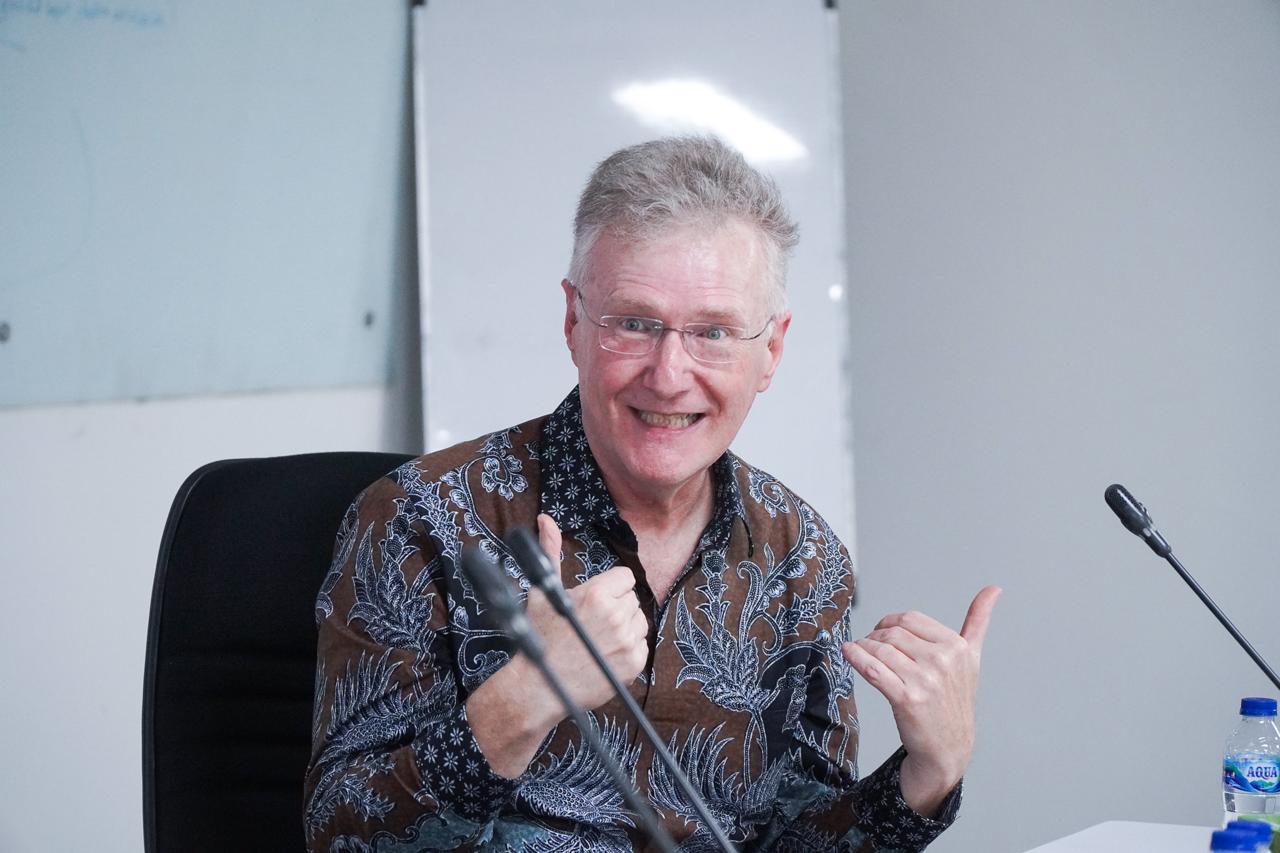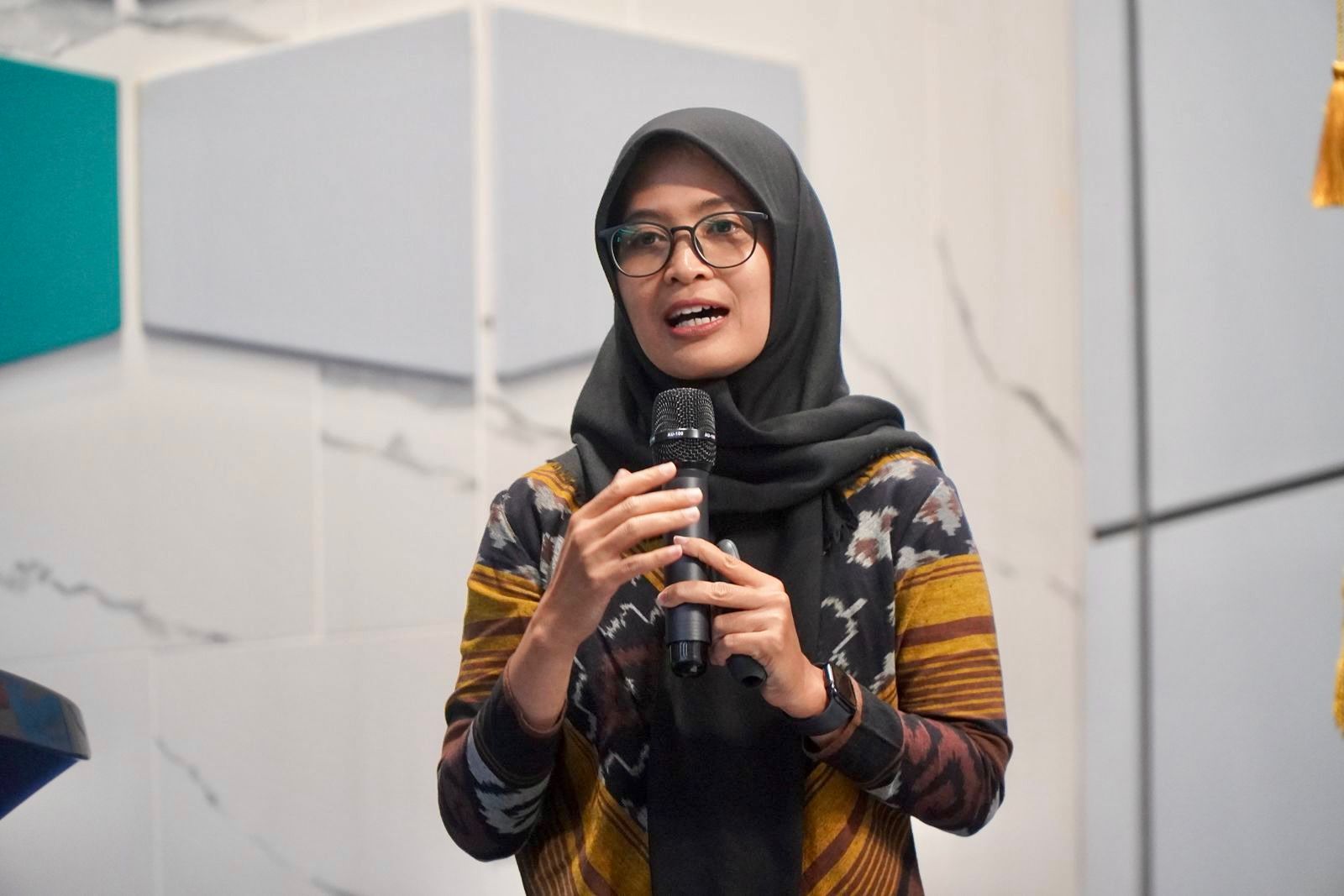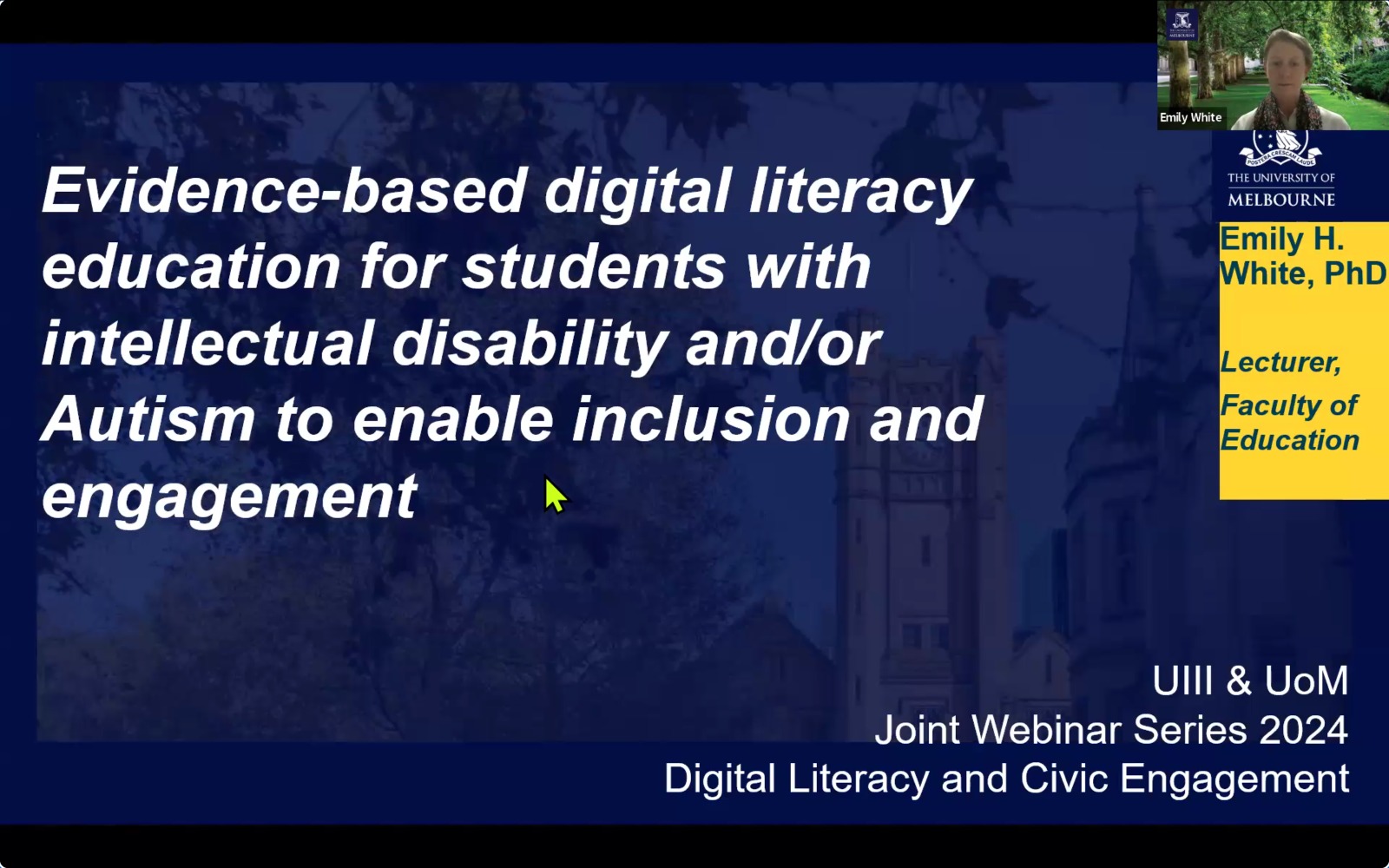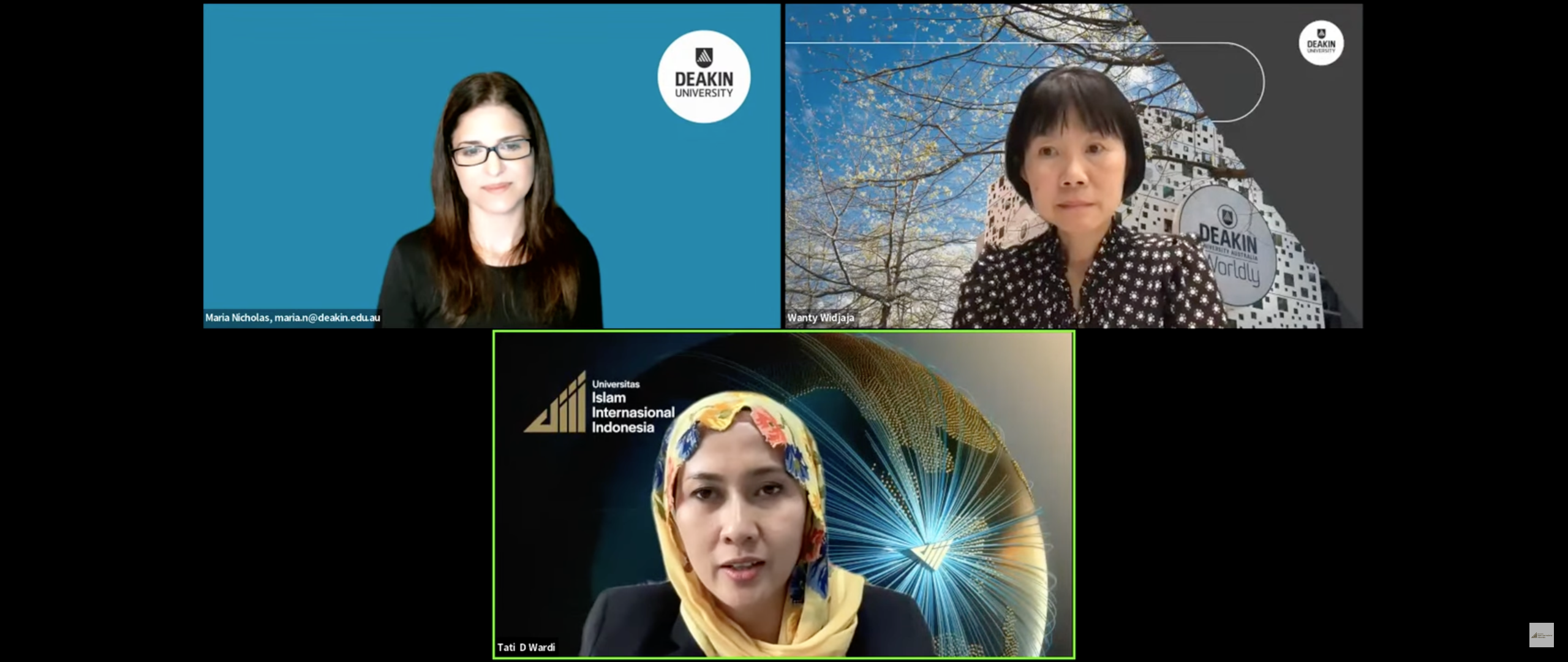Innovation in Indonesian Literacy Education from Outsider’s Perspective
December 04, 2024Contributor: Supriyono | Editor: Dadi Darmadi | Photo: Virda Lalitya Umam

Depok, November 28, 2024 – The UIII Faculty of Education hosted a thought-provoking public lecture on “Innovation in Indonesian Literacy Education” with Assoc. Prof. Adrian Rodgers from The Ohio State University, USA. Prof. Rodgers, who has visited Indonesia over 50 times, shared insights from his extensive research and experiences working with Indonesian students and educators. Aside from being an academic at The Ohio State University, he is also a key figure in the OSU-Indonesian Education Consortium (USINTEC), which fosters student and faculty exchanges between Indonesian and US universities.
In his lecture, Prof. Rodgers emphasized that the current state of literacy education in Indonesia requires a rethinking of traditional classroom practices. Through his research in 14 classrooms across five islands, he observed that writing activities in Indonesian classrooms are significantly limited. “In some cases, students wrote as little as eight words in two hours of instruction, highlighting the need for greater emphasis on writing as a foundational skill,” he said. He also noted that classrooms are often dominated by whole-class instruction, leaving little room for small group tasks, differentiated learning, or individual engagement, which are essential for fostering creativity and deeper understanding.
A key theme in Prof. Rodgers’ presentation was the gap in emergent literacy practices. Unlike in the United States, where children progress through stages of literacy from beginner to advanced, Indonesian students are expected to achieve full reading proficiency by the end of Grade 1. This abrupt shift, he argued, bypasses critical foundational stages that build confidence and competence in young learners. He suggested that a more expansive approach to literacy, which includes creative activities like drawing diagrams, making lists, and writing for authentic purposes, could better support early learners.
Prof. Rodgers also called attention to the role of classroom environments and materials in shaping literacy outcomes. He described the lack of engaging and diverse resources in many Indonesian schools, where textbooks are often uninspiring, and classroom libraries are poorly organized. He proposed simple yet transformative solutions, such as using leveled books to match students’ reading abilities and displaying materials in visually appealing ways to spark interest. Furthermore, he emphasized the importance of incorporating technology, even in low-connectivity areas, to encourage students to share their work and engage in collaborative learning.
Throughout his lecture, Prof. Rodgers encouraged educators to reflect on their practices and consider the broader implications of their teaching methods. Drawing on the theories of Vygotsky and Dewey, he ended the lecture with two critical questions as hypothesis of his preliminary findings: “is Indonesian Education holding kids back, keeping them ‘too low too long?’ and is the teacher working too hard while students are passive learners?”
The session concluded with an engaging discussion, as educators shared their experiences and explored practical ways to implement these innovative ideas. Prof. Rodgers applauded the audience for their commitment to improving education and reiterated that meaningful change often starts with small, consistent steps.
This lecture underscores UIII’s dedication to fostering critical dialogue and advancing education in Indonesia. By bringing global experts like Prof. Rodgers to its campus, UIII continues to inspire educators to rethink and refine their approaches to literacy education, paving the way for a brighter future for Indonesian students.
- It’s Time for Africa! UIII Aims to Expand Outreach in African Continent
- Future Innovators Gather at UIII for 1000x Challenge Mentoring & Briefing
- UIII and Al-Azhar Strengthen Ties for the Advancement of Islamic Civilization
- FoE Holds Dissertation Progress Forum for First Batch PhD Students
- Synergizing Technology with Quality Assurance, UIII forms QAS
- PPM and International Office Joint Forces in Enhancing Support for Students and Alumni
- Muslim Politics Review Launches 6th Edition with Insightful Global Perspectives
- FAQs - Gate Design Competition of UIII Campus
- Planning, Executing, Evaluating—Repeat: FoE Makes End-Semester Gathering a Tradition
- Residents Voluntarily Relocate as Land Clearance Progresses


